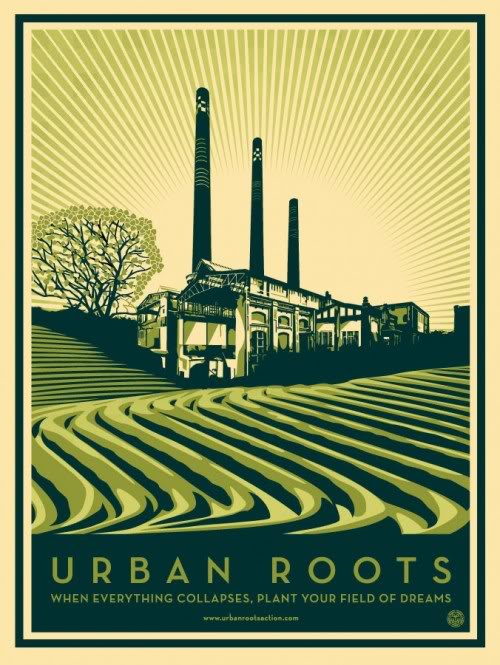
Detroit’s local food movement explored in “Urban Roots”
When I think of my relationship to Detroit, the word “transplant” comes to mind. Though not native to this city or this soil, it’s the place I’ve chosen to put down roots, inspired in large by the burgeoning urban gardening movement that is the subject of the documentary “Urban Roots,” which screened last night as the penultimate installment in the Detroit Institute of Art‘s (a Knight Arts grantee) “Detroit Revealed on Film” series taking place at the Detroit Film Theatre. At a moment when I struggle to help get a community garden in my own neighborhood through the red tape which surrounds the still-nascent formation of city policy regarding urban agriculture, the viewing provided a much-needed shot in the arm and timely reminder that those who preceded and inspired me to action had a much tougher row to hoe.
The film is directed by Mark MacInnis and brims with perspectives, notably recognizable Detroit farmers and activists from some of the city’s highest-profile agricultural growing spaces, including Brother Nature Produce, the Farnsworth Farm, Earthworks Urban Farm and D-Town Farms, as well as educational venues, like Catherine Ferguson Academy, and entrepreneurial outlets, like the Eastern Market — one of the nation’s oldest and largest farmers markets — and Field Of Our Dreams, a mobile produce enterprise. A political perspective is provided by former Mayor Dennis Archer and Kathryn Underwood, city planner on the Detroit City Planning Commission. Supino Pizzeria owner Dave Mancini discusses the delicious implementation of garden-to-table offerings made possible by the accessibility of fresh produce, and Dan Scarsella of Motor City Brewing Works shared his thoughts on recycling brewery waste into compost. The residents of Elmhurst Treatment Center talked about giving back to the communities they once took from and assisting their own recovery through work in the facility’s community garden. People of all ages and all walks of life share their thoughts on access to healthy food and the necessity of every Detroiter to assert it as a basic human right.
The sense that emerges from all these voices is one of Detroit agriculture as a complex social ecosystem, growing and developing in a way that is both interdependent and organic as the produce it brings to bear. This individualist, under-the-radar movement — small in acreage but ever-widening in scope and unparalleled in heart — is sowing new hope for Detroit, and by extension, a world full of dying industry and rising transportation costs. Urban Roots leaves no stone unturned, including the controversy over Hantz Farms, a larger-scale operation with an eye on being the first big investor to widen the gap created by the early pioneers.
Meantime, talk is cheap, and it’s planting season. While zoning and policy issues may mire in the morass of Detroit city politics, those with their eyes truly on the prize have their hands in the dirt.
Find out more at urbanrootsaction.com.
Recent Content
-
Artsarticle ·
-
Artsarticle ·
-
Artsarticle ·


